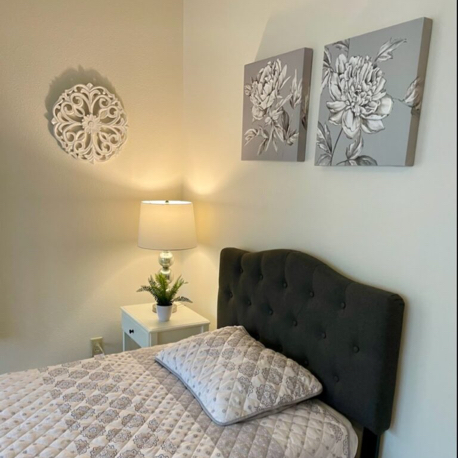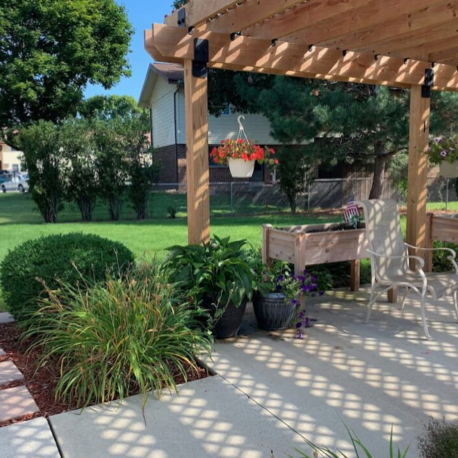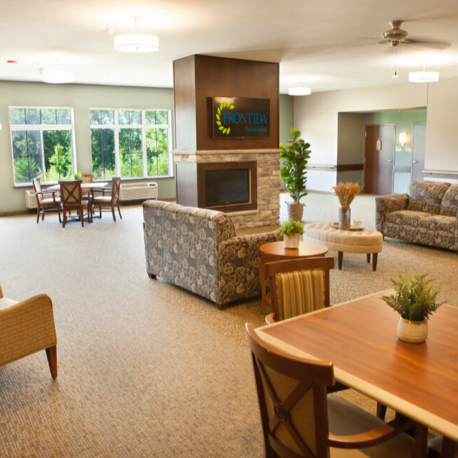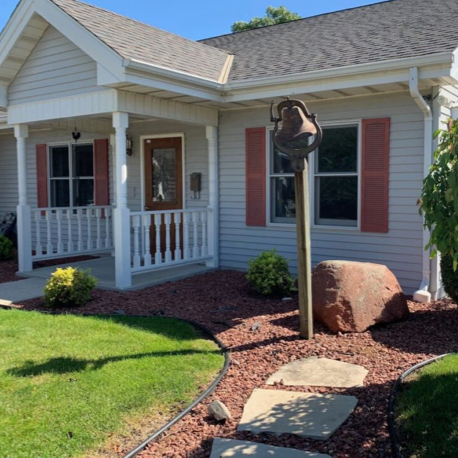Caring for a loved one with dementia can be a challenging and emotional experience. As the condition progresses, families often find themselves weighing care options to ensure their loved ones are safe, comfortable, and adequately supported.
Assisted living is often chosen as a living option for someone with dementia, which requires families to recognize that it’s time for a loved one to have more support, select the right community, and prepare for the move.
However, while assisted living may seem like a suitable solution, it is not always the most appropriate choice for people with dementia, particularly in the later stages of the illness. Memory care is usually a better alternative.
Assisted Living & Dementia Care
Many families turn to assisted living when caring for someone with dementia becomes too overwhelming at home. Assisted living communities are designed for seniors who need help with daily activities (e.g., bathing, dressing, meal preparation) but wish to maintain as much independence as possible.
However, assisted living environments may not always have the robust support systems necessary for someone with dementia, especially as the condition progresses.
What Support Does Assisted Living Offer Those with Dementia?
Assisted living communities offer a range of supportive services, including assistance with activities of daily living (ADLs), medication management, and opportunities for socialization with other residents. Specific assisted living communities offer memory care services, such as structured activities and basic cognitive support.
For individuals in the early stages of dementia, this level of care may suffice. However, as dementia progresses, symptoms such as confusion, wandering, and behavioral changes often require more specialized care.
Why Do Families Move Loved Ones with Dementia to Assisted Living?
Families often choose assisted living for several valid reasons:
- Proximity to Home: Assisted living communities are more readily available in many areas than memory care communities.
- Affordability: Assisted living is typically less expensive than memory care, initially making it a more financially feasible option.
- General Services: For someone with early-stage dementia, assisted living can provide the support they need for a time, particularly with ADLs and medication management.
However, as dementia symptoms intensify, these communities may lack the trained staff, secure environment, or tailored programming that people with dementia require for their safety and well-being.
A Better Option Memory Care for Those with Dementia
For individuals with worsening dementia symptoms, memory care offers a much more comprehensive and supportive environment than assisted living. Memory care communities are specifically designed to meet the unique needs of those with Alzheimer’s and other forms of dementia.
Understanding Memory Care & Its Relation to Assisted Living
Memory care is a specialized form of senior care often housed within an assisted living community but operates independently. Its programs and services are explicitly structured around the needs of those living with dementia.
Staff Training, Environment & Activities
One key difference in memory care is the staff training. Caregivers in memory care communities are specifically trained to understand the complexities of dementia, including managing challenging behaviors, reducing stress, and improving quality of life.
The environment also plays a huge role. Memory care communities are designed to reduce confusion and agitation, featuring secure layouts, calming colors, and familiar spaces. Daily activities are carefully created to stimulate cognitive functions and provide a sense of normalcy for residents.
Enhanced Monitoring & Security
Memory care communities often provide higher levels of monitoring and security. This includes preventing wandering, a common symptom of dementia, and ensuring residents are always in a safe and secure environment.
Recognizing the Need for Memory Care
It’s essential to look out for signs that your loved one may need memory care rather than assisted living. These include:
- Increased confusion or disorientation.
- Wandering or attempting to leave their current living space.
- Difficulty with routine daily tasks, even with assistance.
- Aggression or emotional outbursts.
- Signs of loneliness or withdrawal from social activities.
If you’ve noticed several of these signs, it may be time to explore memory care options.
Selecting the Right Community

Evaluating several key factors is essential when choosing a memory care community to ensure it best suits your loved one.
Evaluating Staff & Services
Ask questions about staff-to-resident ratios, staff qualifications, and the level of training provided. Evaluate the services and activities offered to ensure your loved one’s needs will be met on both a practical and emotional level.
Considering Location & Accessibility
The community’s location should be convenient for family members who want to visit regularly. Additionally, consider how accessible the community is, ensuring it meets the needs of your loved one and your family.
Visit each community at different times of the day to get a true sense of its operations. Trust your instincts and choose the community that feels most welcoming, safe, and aligned with your loved one’s needs.
Helping Your Loved One Thrive in Memory Care
Advancing dementia doesn’t have to mean the loss of dignity or quality of life. Memory care communities are uniquely positioned to provide comprehensive support, ensuring residents receive the medical attention, security, and engagement they need to thrive.
Riverwood Senior Living advocates for families to recognize when memory care is the appropriate choice for their loved one. By taking the time to find the right community, you’re taking an essential step toward safeguarding your loved one’s future. Contact us today to learn more about how our community can support your loved one.







